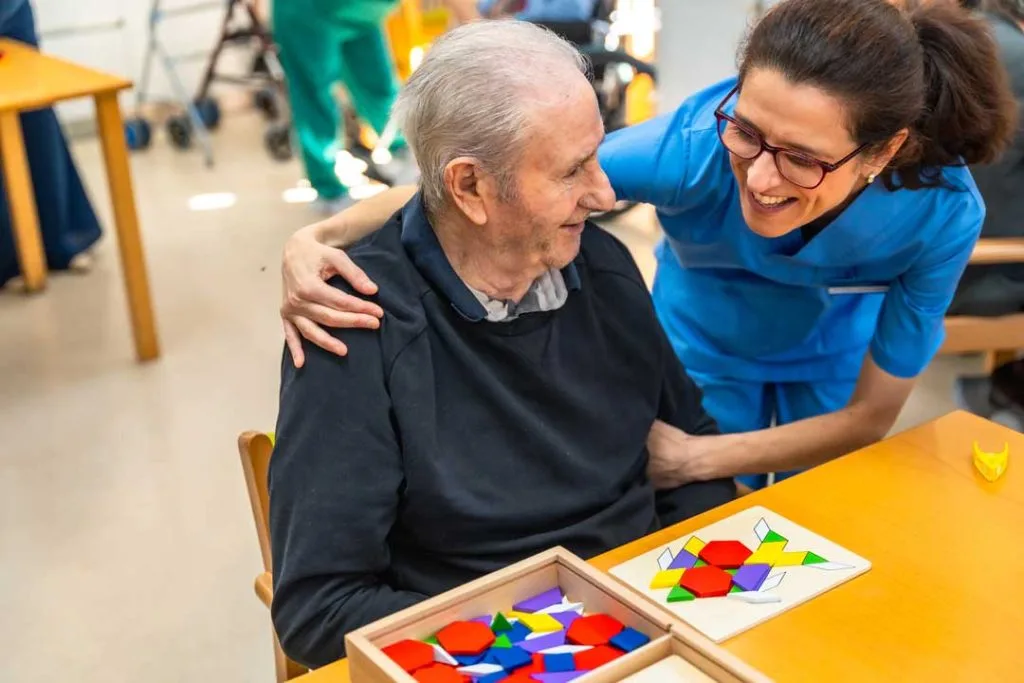Is depression an early warning sign of dementia—or does dementia trigger depression? Scientists are uncovering how these conditions intertwine.

Dementia is not a single disease but a collection of symptoms. Memory loss, cognitive decline, and the gradual erosion of daily functioning, all come under its umbrella. Alzheimer’s disease, the most common form of dementia, causes amyloid plaques and tau tangles.
These are silent assassins that sever neural connections, extinguishing identity itself. Depression, meanwhile, is an altogether different disorder, an affliction caused by trauma and sadness. It is more responsible for a loss of interest in life’s pleasures. One steals memory, and the other steals hope.
Yet, the border between these two is blurred. Studies hint at a sinister correlation. Depression, striking in midlife or later, appears to pave the road to hallucinations and dementia. Recent researchers report that depression may double, even triple, dementia risk.
But why? What force binds them? Is depression a symptom, a warning, or a trigger? The answer is not simple. Let us dive into the specifics.
Are Dementia and Depression Linked? Understanding the Connection

Does depression cause dementia? Or does dementia cause depression? Or are they descended from some common pathology?
These questions were asked by a group of Harvard researchers. The report suggested that to find out the answer, we should consider the following factors:
Depression as a Risk Factor
Researchers propose that chronic depression speeds up brain aging, leaving it vulnerable. The culprit? Cortisol, which is a stress hormone. When found in perpetually high amounts in your brain, it shrinks the hippocampus, which is our memory vault. A wounded hippocampus invites cognitive decay. Inflammation and oxidative stress both run rampant in depression and Alzheimer’s alike.
Dementia as a Trigger for Depression
But what if the order is reversed? Imagine, a once sharp mind finds itself lost, forgetting names, and confusing days. They may be struggling with tasks once trivial. When this realization sets in, the person becomes struck with grief. The weight of it drags the mind into depression’s abyss, creating a cycle. Decline and despair lead to further decline, like a self-fulfilling prophecy.
Shared Biological Pathways
Or perhaps both are caused by a common underlying link that we are yet to find. It could be that instead of one leading to the other, both stem from common roots. Neurotransmitters—serotonin, dopamine, norepinephrine– are affected in depression. But they are also affected by dementia, too. Inflammation, vascular dysfunction, genetic predisposition, these same culprits appear again and again in both diseases. Scientific research is still ongoing regarding these links, but patterns are emerging.
The Brain’s Silent Struggle

To understand the links better, we peer into the brain. Neuroimaging paints a stark picture. The hippocampus, our memory’s seat, shrinks in both disorders, dementia and depression. The prefrontal cortex, the master of executive function, also becomes worse—its activity is blunted in both conditions. Emotion and reason, both are compromised.
Then there are amyloid plaques. These are sticky, malignant clusters suffocating neurons in Alzheimer’s disease. Some studies suggest that depression influences their formation. Does it accelerate the process, or impair clearance? And, does dementia make you hallucinate? The science is still trying to find the answer to these questions, but the connection is undeniable. The brain is one giant machine. When one system fails, ripples spread and affect other parts.
The Emotional Toll of Memory Loss
Beyond biology, there is also the aspect of human suffering. Dementia does not merely erase memory—it erodes identity. Name, face, history– all are gone. The terror of the consequences of dementia breeds isolation. This isolation later births depression. Also, the patients find themselves asking, what stage of dementia is hallucinations?
Conversely, depression robs the mind of its brightness. The patients become withdrawn and do not engage in social activities.

This disengagement causes a lack of brain stimulation, and once all the factors pile up, the brain is weakened. Unstimulation, disengagement, and cognitive loss form a vicious cycle that continues to deteriorate the brain’s capacity.
Hope on the Horizon
Despite these links pointing towards a very dark and bleak future for the affected patients, hope still persevers. If depression fuels dementia, might treating depression slow the decline? To accomplish any kind of victory in this long battle, early intervention is key. We should be ready to read the early warning signs.
Cognitive behavioral therapy, antidepressants, exercise, mindfulness, and social connection– all are key to a healthy brain and to slow the decline due to depression and dementia. These remedies are recommended not just for mood—but for cognition itself. They could also hold the key to the question– do dementia patients hallucinate?
As scientific research advances, new frontiers beckon. Anti-inflammatory treatments are gaining traction. Drugs targeting amyloid plaques are also being considered. The same goes for brain training exercises and neurostimulation. What if the same treatment could fight both disorders? That would be the dream scenario.
Are Dementia and Depression Connected? Exploring the Overlap

Dementia and depression remind us that the brain is not a machine of isolated parts but a vast, interwoven network. What afflicts one function ripples outward. Biology, psychology, environment—all are entwined.
For now, the puzzle remains incomplete. Yet each discovery brings us closer to clarity. Memory and mood, thought and emotion—perhaps they are not separate at all. Perhaps they are threads in the same intricate tapestry. And perhaps, by understanding their connection, we edge closer to preserving the most precious of all human necessities, which is self-identity.
So, are dementia and depression linked? The evidence is gathering. Scientists are hard at work. The answer is emerging—layer by layer, neuron by neuron, memory by memory.

Jessi is the creative mind behind The Coffee Mom, a popular blog that combines parenting advice, travel tips, and a love for all things Disney. As a trusted Disney influencer and passionate storyteller, Jessi’s authentic insights and relatable content resonate with readers worldwide.
